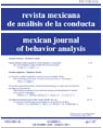Psychological and physical effects of autonomic modulation on myofascial pain: a randomized controlled trial
Main Article Content
Abstract
According with Polyvagal Theory (Porges, 2001), development of the psychological and physical symptoms that distinguish chronic syndromes is related with an elevated sympathetic activity and, in the other hand, reductions in this activity could derive in symptoms decrease. In this study, aforementioned assumptions were tested in chronic myofascial pain patients. 30 female patients were randomly assigned to one of two groups: experimental (“training”) or control (“health chats”). Before and after intervention autonomic activity was recorded (Peripheral Temperature and Surface Electromyography) as well as cognitive-emotional state (Beck´s Anxiety and Depression Inventory), and through numerical rating scales, both myofascial-pain diagnostic symptoms (soft nodule, taut band and digit-pressure pain) and perceived pain intensity. Training group showed decrements in all variables under study while control group do not. Results are congruent with Polyvagal Theory and supports possibility for relationships between development and permanence of chronic syndromes and patient´s nervous adaptive activity. Implications of these findings to behavioral medicine field are discussed.
